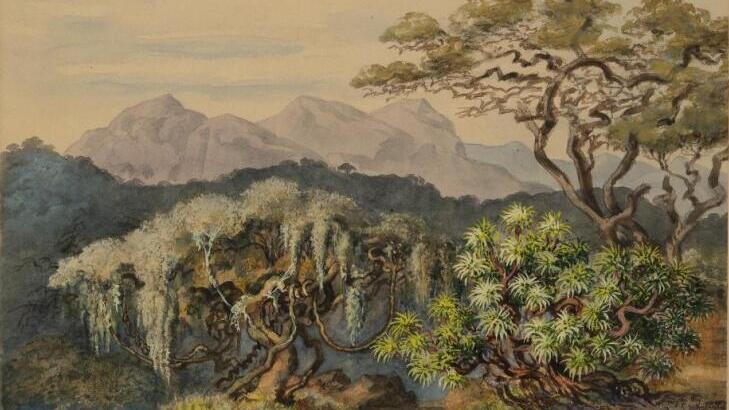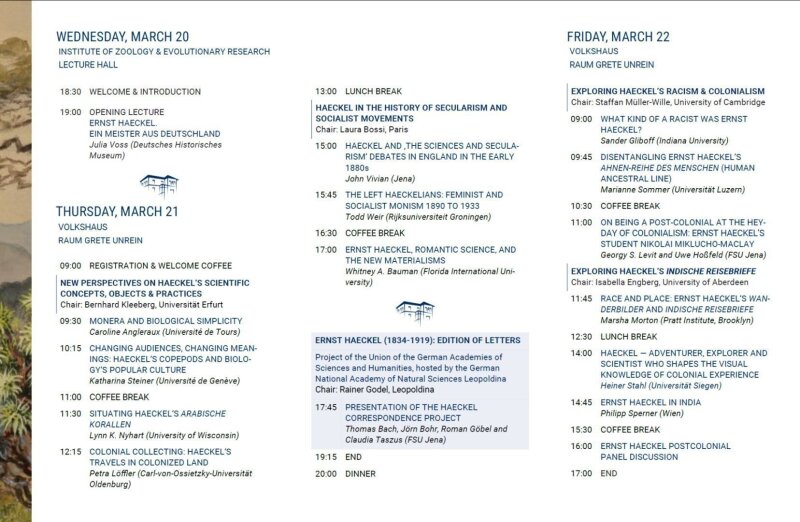
Published:
The workshop was organized by the Ernst-Haeckel-Haus at the Friedrich Schiller University Jena in cooperation with the Centre of Science Studies of the German National Academy of Sciences Leopoldina and the “Ernst Haeckel (1834-1919): Edition of Letters”, a project in the Academies’ Programme
Ernst Haeckel (1834-1919) is one of the most controversial scientists of his era. Well-known as a supporter and popularizer of Darwin’s theory of evolution in Germany, he is admired for his artwork. But he is also remembered as a prominent representative of nineteenth century social darwinism and scientific racism. While some even described him as a forerunner of the Nazis, others portrayed him as progressive figure who fought against religious dogmas and for a materialist worldview. These multiple, contested and often contradictory images of Haeckel refer to different historiographical traditions. They reflect the diversity of attempts to apprehend Haeckel’s contribution to the scientific, political, artistic, and philosophical transformations of the nineteenth and twentieth centuries. The aim of this workshop was to discuss existing scholarship and initiate new research on the multiple facets of Haeckel’s work. We sought to explore innovative ways of interpreting and contextualizing Haeckel’s work in light of recent historiographical approaches and current public debates. Ecological concerns in the age of the Anthropocene, but also new debates on colonialism, racism as well as postcolonial approaches invite to investigate Haeckel’s science and art from novel perspectives.
Workshop program "Ernst Haeckel Postcolonial"
Screenshot: Bastienne Karg